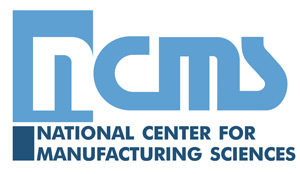Vehicle Health Management System (VHMS) – Phase III
NCMS Project #: 142075
Problem: Transitioning from preventative maintenance to CBM+ is a journey, with many requirements, but at the foundation is the data. The ability to collect the quality and quantity of data required to “see” into the condition of the vehicle and predict future maintenance needs weeks before a failure is critical. Currently there is a substantial amount of variation across Army platforms pertaining to the ability to collect and transfer this data which creates a significant obstacle to implementing CBM+.
Benefit: Integrating the current disparate sources of vehicle data across the U.S. Army, and presenting that information in a simple, single user interface results in powerful insights. This enables a new maintenance philosophy of leveraging vehicle data to provide visibility into the asset’s condition while improving availability and decreasing the overall maintenance burden. The processes, tools, lessons learned, and best practices captured from this U.S. Army will greatly benefit the general public and private industry in many different areas (commercial/fleet vehicle maintenance, rail, power, manufacturing, healthcare, IT, etc.).
Solution/Approach: For Phase III, the migration of the Security Enhanced Maintenance Support Device (SE MSD) from the obsolete MSDv3 to the MSDv4 hardware will continue, along with Risk Management Framework (RMF) authorization, assistance towards achieving an Authority to Operate (ATO), and fielding of the upgraded SE MSD to support the latest Abrams configuration.
Impact on Warfighter:
- Predictive maintenance approach
- Reduce maintenance costs
- Improve asset performance and reliability
- Increase warfighter readiness
DOD Participation:
- U.S. Army Program Manager – Abrams/Product Directorate Main Battle Tank Systems (PM Abrams/PD MBTS)
- U.S. Army Program Executive Office Ground Combat Systems (PEO GCS)
Industry Participation:
- Ricardo Defense, Incorporated
- NCMS
Benefit Area(s):
- Maintenance avoidance and reliability
Focus Area:
- Other
